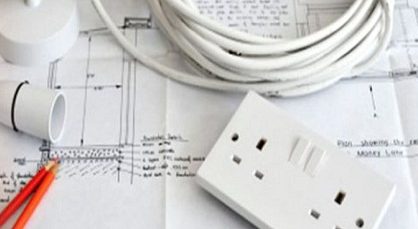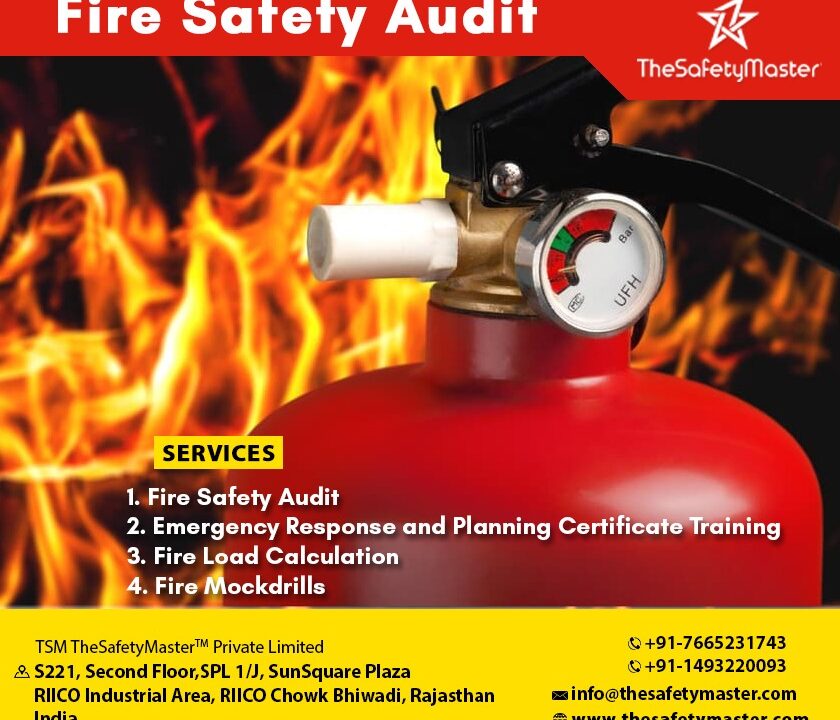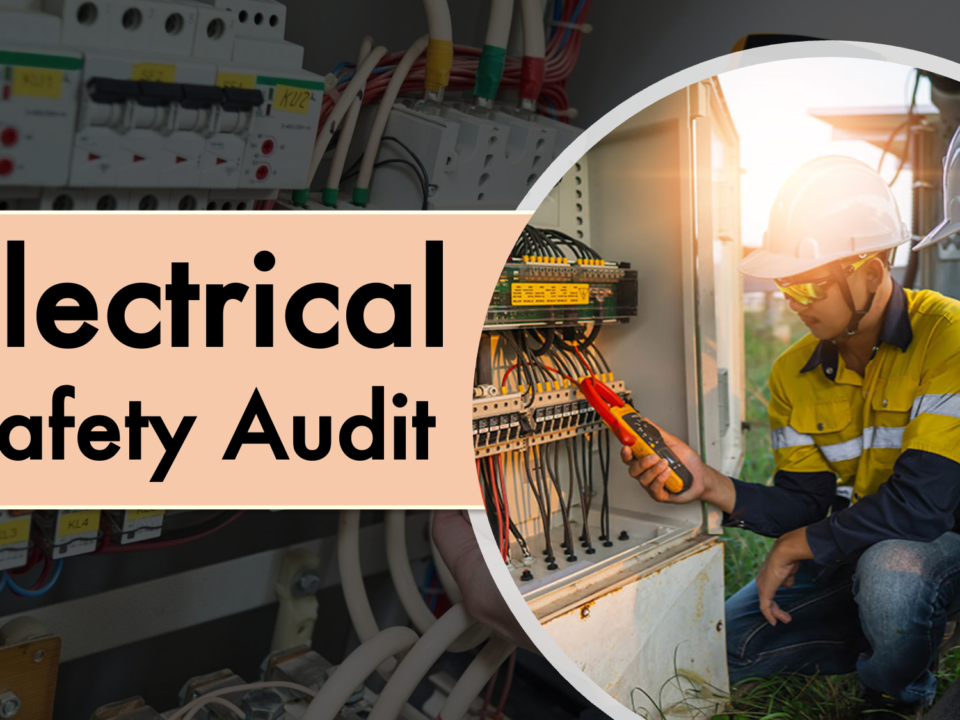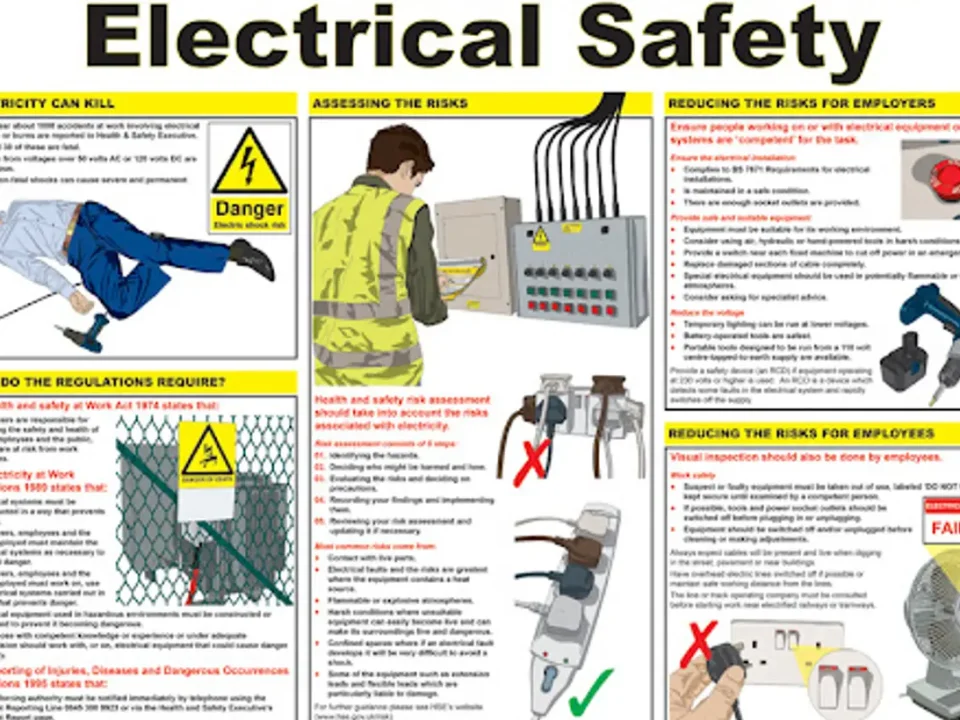The Importance of Electrical Safety Audits: Protecting Your Employees and Business

The Ultimate Guide to Implementing BIS14489 Safety Audit Standards
June 6, 2023
Behavior Based Safety Training
June 7, 2023The Importance of Electrical Safety Audits: Protecting Your Employees and Business
In this article, we delve into the critical importance of electrical safety audits and the impact they can have on protecting both your employees and your business. The potential risks of electrical safety hazards can be catastrophic, not just in terms of workplace injuries, but also financially for any business. Our objective is to inform you of the importance of such audits and empower you with the knowledge you need to prioritize electrical safety regulations. By the end of this article, you will fully understand the need for these audits and how they can provide long-lasting protection for all involved.
Introduction
Electricity is a necessary component of modern businesses, but it also poses a significant safety risk to employees and assets. It only takes one mistake or malfunction to cause a deadly accident or costly damage. Unfortunately, many companies take electrical safety for granted and neglect the importance of regular safety audits.If you are reading this article, you most likely understand the value of prioritizing electrical safety in your workplace. In this article, we will explore why electrical safety audits are essential for protecting your employees and business from harm. You can expect to learn about the benefits of hiring professionals for these audits, real-life examples of electrical hazards, and the consequences of ignoring these critical measures.
What Are Electrical Safety Audits?
Electrical safety audits are thorough inspections of a building’s electrical system to identify potential hazards or code violations. These audits are essential for maintaining a safe workplace for your employees while also protecting your business from costly fines and legal liabilities.
During an electrical safety audit, trained professionals will inspect all components of the electrical system, such as wiring, circuit breakers, switches, and outlets. This extensive inspection helps identify any unsafe conditions that may exist in the workplace and allows for prompt corrective action.
Electrical safety audits can also identify areas where energy efficiency improvements can be made. By upgrading to more efficient lighting or power equipment, businesses can reduce their energy consumption and save money on utility bills in the long run. Ultimately, investing in an electrical safety audit is a wise decision that not only protects employees but also benefits the company’s bottom line.
The Importance of Electrical Safety Audits for Employee Safety
The Importance of Electrical Safety Audits for Employee Safety Electrical safety should be a top priority in any workplace, especially those that deal with machinery and high voltage equipment. Electrical safety audits are essential to identify hazards and assess the effectiveness of safety measures in place. These audits ensure that employees are protected from electrical shocks, burns, and other injuries related to electrical accidents.
Employees in workplaces with inadequate electrical safety standards face a higher risk of injury or even death from electrocution. A comprehensive electrical safety audit will assess all areas of potential electrical hazards and provide recommendations for improvement. Implementing these recommendations will make the workplace safer for everyone involved.
Besides ensuring employee safety, another important reason why businesses should prioritize electrical safety audits is compliance with regulations and standards set by regulatory agencies such as OSHA (Occupational Safety and Health Administration). Failing to comply can result in significant fines or even legal action against the business owner if an employee is injured due to a lack of proper safeguards.
Overall, conducting regular electrical safety audits not only protects employees but also helps businesses avoid expensive legal repercussions while promoting a safe work environment that boosts employee morale and productivity.
The Benefits of Hiring a Professional for Electrical Safety Audits
Professional electrical safety audits require specialized training and expertise. Hiring a qualified professional to perform an electrical safety audit for your business comes with numerous benefits that you cannot get from doing it yourself or relying on your in-house experts. Firstly, a professional understands the latest industry standards and regulations regarding electrical safety. This ensures that your business meets all legal requirements and keeps up with best practices to minimize the risk of electrocution, electric shock, and other hazards.
Secondly, a professional has access to specialized tools and equipment needed for electrical safety audits. They can test for problems such as grounding issues, insulation resistance, current leakage, and voltage fluctuations using sophisticated equipment that is often unavailable to non-professionals.
Lastly, hiring a professional takes the burden off of your employees. Your employees can focus on their daily tasks without worrying about managing electrical safety audits or being held responsible for any oversights in compliance with regulations.
Overall, hiring a professional for electrical safety audits helps ensure the safety of your employees while reducing liability concerns associated with non-compliance or accidents caused by faulty wiring or outdated equipment.
Real-life Examples of Electrical Safety Issues
Electricity is an essential part of our daily lives, but it can also be hazardous if not handled properly. Real-life examples of electrical safety issues in the workplace highlight the importance of proper electrical safety audits. One such example occurred in a manufacturing facility when an employee was electrocuted due to faulty wiring. This tragic incident could have been prevented through timely electrical safety audits.Another common issue that arises in workplaces is overloading circuits and using damaged equipment. Such practices can result in electric shocks and even lead to fires, risking employees’ lives and causing significant damage to businesses. Electrical safety audits can identify these potential hazards and ensure they are promptly addressed before they create any harm.
Lastly, faulty or poorly maintained electrical panels pose a severe threat to employee safety. A small spark from a short-circuit caused by wiring faults or loose connections can quickly turn into a catastrophic explosion, injuring employees and damaging property. Regular electrical safety audits will help businesses avoid such costly incidents by ensuring their systems are correctly maintained and up-to-date with industry standards.
The Consequences of Ignoring Electrical Safety Audits
When it comes to electrical safety audits, ignoring them can have severe consequences for both your employees and your business. One of the most significant risks of disregarding electrical safety audits is the potential for workplace accidents, including electrical shocks, burns, and even fires. These types of incidents not only pose a threat to employee safety but can also cause significant damage to equipment, buildings, and other assets. Aside from the physical dangers, there are also legal and financial risks associated with failing to conduct proper electrical safety audits. Employers who neglect their responsibility to provide a safe working environment can be held liable for any injuries or damages that occur as a result of negligence. This could result in costly lawsuits or fines that could potentially bankrupt small businesses.
In addition to these negative consequences, ignoring electrical safety audits can negatively impact employee morale and trust in management. Employees who feel unsafe or undervalued are more likely to be disengaged from their work and may seek employment elsewhere. Conversely, prioritizing employee safety through regular electrical safety audits can foster a positive work culture where employees feel valued and supported in their workplace endeavors.
Conclusion
As we have seen, electrical safety audits are crucial for protecting both your employees and your business. Hiring a professional to conduct thorough electrical safety audits can help identify potential hazards and prevent workplace accidents. By investing in regular electrical safety audits, you are taking the necessary steps to ensure that your workplace is safe for everyone. Remember, prevention is always better than dealing with the consequences of an accident.
The Ultimate Guide to Implementing BIS14489 Safety Audit Standards
In this article, we delve into the importance of BIS14489 Safety Audit Standards, their implementation, and the benefits they bring to companies and organizations. Safety should always be a top priority, and with BIS14489, it is easier to ensure that safety standards are met. We will highlight the challenges companies face in enforcing these standards and provide recommendations for overcoming them. As you read along, expect in-depth analysis, practical examples, and guidance on how to navigate the complex world of safety audits. By the end of this article, you will have the ultimate guide to implementing BIS14489 Safety Audit Standards that will ensure the safety of your employees and the continuity of your business operations.
Understanding BIS14489 Safety Audit Standards
Understanding BIS14489 Safety Audit Standards:BIS14489 Safety Audit Standards is a comprehensive set of guidelines designed to ensure the safety and security of workplaces. It was developed by the Bureau of Indian Standards (BIS) to help organizations minimize risks and improve their safety standards. This set of standards incorporates regulations for identifying potential hazards, assessing risks, and implementing appropriate control measures.
The BIS14489 Safety Audit Standards provide a framework for organizations to assess their current safety policies and procedures. It includes guidance on how to identify potential hazards within the workplace, evaluate risk levels, and implement effective control measures that can minimize or eliminate those risks entirely. The aim is to make sure that all employees work in an environment that is safe from harm.
Understanding these standards is vital for any organization wishing to implement them effectively. By doing so, an organization can create a safe working environment where employees feel valued and protected while also ensuring compliance with relevant regulatory requirements. By taking steps towards creating such an environment, the organization can reap the benefits of greater productivity, fewer accidents or incidents, and an overall positive work culture.
Preparing for BIS14489 Safety Audit:
Before conducting the BIS14489 safety audit, it is essential to understand the principles and objectives of this standard. It would be best if you prepared a checklist that covers all areas of the organization that need to be audited. This can include reviewing the company’s safety policies, procedures, and records.It is also essential to select an appropriate team that will conduct the audit. The team members should have knowledge of relevant safety regulations and standards, as well as experience in conducting safety audits. They should work together seamlessly to ensure that every aspect of the organization is thoroughly assessed.
Lastly, it is crucial to disseminate information about the upcoming audit throughout your organization. This helps everyone get on board with implementing and maintaining BIS14489 standards compliance. By incorporating these steps into your preparation efforts, you will set yourself up for a successful BIS14489 Safety Audit outcome while maintaining a positive attitude towards safety compliance in your workplace.
Conducting Implementation Audit:
Once you have prepared for the BIS14489 safety audit, it is time to conduct the implementation audit. This involves evaluating your safety management system against the set standards and identifying areas that require improvement. An auditor may be required to oversee this process and ensure that all applicable requirements are being met.During the implementation audit, you will need to examine your current processes, procedures, and controls to determine whether they align with the BIS14489 safety audit standards. If there are discrepancies between your existing practices and the required standards, you will need to identify corrective actions that can be taken to bring your system into compliance.
It is important to approach the implementation audit with a critical eye. While it may be tempting to overlook minor issues or inaccuracies in your safety management system, failing to address these areas can lead to major problems down the line. By conducting a thorough implementation audit, you can ensure that your organization is not only meeting minimum compliance requirements but also taking proactive steps toward improving overall safety performance.
After conducting the implementation audit, it is crucial to create an action plan that outlines the necessary steps to meet the BIS14489 safety standards. This plan should include a timeline, budget, and resources required for each step. It’s advised to involve all relevant stakeholders in the creation of this plan so that everyone is on board and understands what is expected.The action plan should clearly outline how compliance with BIS14489 standards will be achieved. Break down the tasks into manageable objectives, assign them to responsible parties and set deadlines for each objective. A clear and concise action plan will help in achieving the desired outcomes within a given timeframe.
It’s essential to review the action plan regularly to ensure everything is on track, make adjustments where necessary and ensure any changes are communicated effectively with all stakeholders involved. By following a well-crafted action plan, organizations can ensure successful implementation of BIS14489 safety audit standards while minimizing risks and ensuring employee safety.
Maintaining BIS14489 Standards Compliance
Maintaining BIS14489 Standards Compliance:Once you have established BIS14489 safety audit standards in your organization, the next step is to ensure that these standards are maintained over time. This requires a continuous effort and commitment from everyone involved in the process.
Regular reviews and assessments of your safety policies and procedures are crucial to maintaining compliance with BIS14489 standards. It is important to identify areas that need improvement and make necessary changes to ensure that you are always meeting the requirements of BIS14489.
In addition, ongoing training and education for employees is essential for maintaining compliance with BIS14489 standards. By keeping your workforce informed about safety issues and procedures, you can create a culture of safety within your organization that will help ensure long-term compliance with these important guidelines.
Benefits of BIS14489 Safety Audit Standards
The implementation of BIS14489 safety audit standards offers numerous benefits to organizations that seek to prioritize the safety of their employees and operations. Firstly, it ensures that all safety procedures are in place and adhered to, guaranteeing a safe work environment for employees. This enhanced adherence reduces the likelihood of workplace accidents, mitigating the impact on workers and preventing costly compensation claims and lawsuits.Moreover, implementing BIS14489 standards enhances the reputation of an organization as a trusted employer that values its employee’s wellbeing. Consequently, this leads to an increased level of employee loyalty and motivation as workers feel valued by their employer. Besides, companies that adhere to these standards often report higher levels of productivity due to increased employee satisfaction levels.
Furthermore, organizations that comply with BIS14489 safety audit standards can access new markets and win new business opportunities because compliance with these standards is typically a requirement for working with some clients or government agencies. Moreover, such compliance helps businesses meet international best practices for occupational health and safety management systems which can be used as a marketing advantage over competitors who do not adhere to these standards.
Challenges to Implementing BIS14489 Safety Audit Standards
Challenges to Implementing BIS14489 Safety Audit Standards:Implementing BIS14489 Safety Audit Standards is not an easy task. One of the major challenges relating to its implementation is that organizations may not be ready to adopt the standard. The implementation process requires a significant amount of time, resources and financial investment that may not be feasible for some organizations.
Another challenge relates to the lack of technical expertise and experience in implementing BIS14489 Safety Audit Standards. Many organizations may not have the requisite knowledge, experience or skill set required for auditing or developing safety standards.
In addition, there is often resistance from employees who are resistant towards change and new policies. Employees may view these changes as additional work and a source of inconvenience rather than as an improvement process. Educating employees on the benefits of implementing these standards can help mitigate resistance to change and address issues related to non-compliance.
Conclusion
In conclusion, implementing BIS14489 safety audit standards is crucial for companies that value the safety and well-being of their employees and customers. While it may pose certain challenges, the benefits far outweigh the costs. By adhering to these standards, companies can promote a culture of safety, reduce accidents and injuries in the workplace, improve productivity and ultimately save money. It’s time for organizations to take a proactive approach towards safety by implementing BIS14489 safety audit standards.
At TSM TheSafetyMaster Private Limited we offer following services
Residual Life Assessment Study
TSM TheSafetyMaster® Private Limited
Unit No 221-451-452, SPL1/J, 2nd & 4th Floor, Sunsquare Plaza Complex, RIICO Chowk, Bhiwadi 301019, Rajasthan, India
Phone: +91 1493 22 0093
Mobile: +91 7665231743/9413882016
Email: info@thesafetymaster.com




